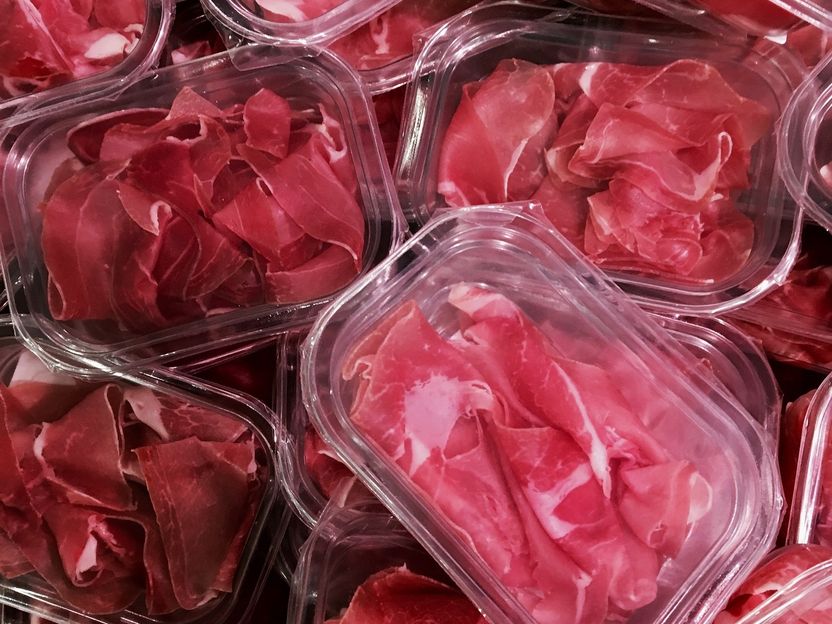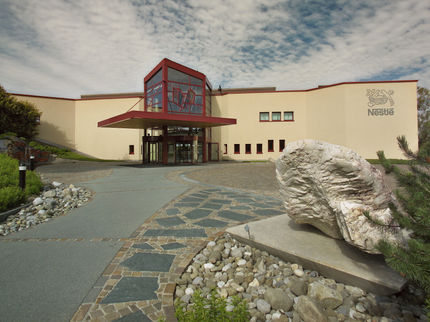New approaches for food packaging made from renewable raw materials
Bio-based plastics as high-quality, recyclable materials of the future
Advertisement
Food packaging made from bio-based plastics is considered an alternative to conventional plastic packaging, but has so far been insufficiently adapted to their high technical requirements. By funding four research projects, the German Federal Ministry of Food and Agriculture (BMEL) aims to open up new areas of application for bio-based plastics in food packaging.
Plastics are the most important packaging material in the food industry and make an important contribution to preventing food waste. They are lightweight, versatile and have good barrier properties. Nevertheless, plastics as a packaging material have come under heavy criticism in recent years due to low recycling rates, waste of fossil resources, damage to the environment through microplastics in the soil and water or an increase in climate-damaging CO2 in the air.
As an alternative, packaging made from bio-based plastics is available. They are produced on the basis of renewable raw materials, conserve fossil resources and do not increase the CO2 content of the atmosphere, or only to a small extent. However, as food packaging, bio-based plastics still have a number of techno-functional weaknesses.
With the funding call "Biobased plastic packaging for food", the BMEL invited research and industry to develop ideas for improving the potential use of biobased plastics in the food sector. Four research approaches emerged from this call and are now being funded by the BMEL through its project management agency Fachagentur Nachwachsende Rohstoffe e. V. (FNR). (FNR). What they all have in common is that the packaging should have as high a bio-based content as possible and that it must be recyclable. In addition, all four approaches deal with application areas that are demanding in terms of packaging technology.
PLA4MAP - PLA trays with improved barrier properties for use in MAP packaging concepts for sensitive foodstuffs
Sensitive foodstuffs, such as sausage, cheese or similar, are often packaged in a modified atmosphere (MAP). The bio-based plastic polylactide (PLA) is not always suitable for this process, mainly due to its high water vapor permeability.
PLA4MAP aims to develop a recycling-friendly packaging concept for MAP packaging based on PLA. The packaging will consist of a thermoformed PLA tray and a PLA sealing film. The tray and sealing film will be multi-layered to meet the different requirements of the food to be packaged and the packaging process. The entire packaging unit is expected to be recyclable.
Technology development for bio-based pouch packaging
Stand-up pouches (pouch packaging) are currently booming on the packaging market. However, they are not yet available in biobased plastics. The three project partners want to develop biobased films and test their suitability for pouch packaging. To this end, the production of biobased pouch packaging is being investigated on a special test facility. In particular, the sealing of the seams, which must be carried out in an efficient and process-safe production window, represents a challenge for the material. The aim is to produce pouch packaging from mono films with as high a biobased content as possible, so that simple material recycling is possible.
Bio2Bottle - Novel biodegradable bottles made of bioplastics with a high biobased content and high barrier
The bioplastic bottles currently available on the market have various disadvantages: Bottles made of polylactide (PLA) are too permeable to water vapor and bottles made of bio-PET are not biodegradable. Four partners from research and industry now want to produce bottles from polyhydroxyalkanoates (PHA). The PHA compounds should be easy to process and have good material stability and a high water vapour barrier. In addition, they must be permeable to CO2 and oxygen. In order to be able to use the bottles made from them for microbially susceptible liquids, they must be able to be sterilized with gamma rays. The material should be recyclable, but also biodegradable.
The PHA bottles will initially not be used for food, but for window cleaning agents and liquid products for organic farming.
BioPrima - Biobased shrink film as primary packaging for freezing applications in the food sector
Shrink films contract when exposed to heat. This means that they wrap around the product like a second skin, either as primary protection, e.g. for frozen pizza, or as transport protection, e.g. for a pack of drinks bottles. The first bio-based shrink films have been on the market for some time, but they are not suitable for deep-freeze applications. This is where the two partners come in. Starting from thermoplastic starch (TPS), they want to develop a shrink film with a very high biobased content (up to 100 %) that is suitable for deep-freezing, can be processed on a large scale and is both biodegradable and recyclable.

Bild von photosforyou auf Pixabay
Note: This article has been translated using a computer system without human intervention. LUMITOS offers these automatic translations to present a wider range of current news. Since this article has been translated with automatic translation, it is possible that it contains errors in vocabulary, syntax or grammar. The original article in German can be found here.





























































